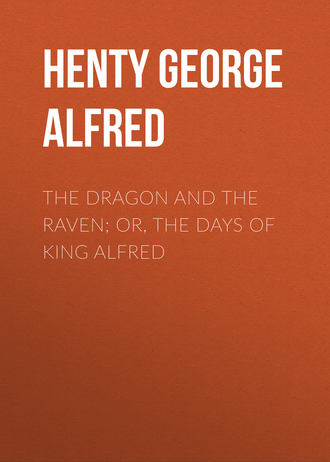 полная версия
полная версияThe Dragon and the Raven; Or, The Days of King Alfred
In the following year a fresh fleet sailed up the Thames and thence up the Lea, where they constructed a fortress twenty miles above London.
Alfred caused two fortresses to be erected on the Lea below them, with vast balks of timber entirely obstructing the river. The Danes, finding their retreat cut off, abandoned their ships and marched across England to Cwatbridge on the Severn. Their fleet fell into the hands of the Londoners, who burned and broke up all the smaller ships and carried the rest down to London. The Danes were so disconcerted by the many and severe defeats which had befallen them that they now abandoned the idea of again conquering England, and taking ship, sailed for France.
Four years later, in 901, King Alfred died, having reigned twenty-nine years and six months. During his reign England had made immense advances in civilization, and in spite of the devastation wrought by the Danish occupation of Wessex during the early years of his reign, and the efforts required afterwards to oppose them, the wealth and prosperity of the country vastly increased during his reign. Abbeys and monasteries had multiplied, public buildings been erected, towns rebuilt and beautified, and learning had made great advances. The laws of the country had been codified and regulated, the administration of justice placed on a firm basis. The kingly authority had greatly increased, and the great ealdormen were no longer semi-independent nobles, but officers of the crown. Serfdom, although not entirely abolished, had been mitigated and regulated. Arts and manufactures had made great progress.
Edmund and Freda survived King Alfred many years, and their district continued to be one of the most prosperous and well-ruled in the kingdom. Their descendants continued to hold the office of ealdorman until the invasion by William the Conqueror, and the holder of the office at that time fell, with numbers of his followers, at the battle of Hastings. For very many years after that event the prow of the Dragon was kept in the great hall of Sherborne as a memorial of the valiant deeds performed against the Danes by Ealdorman Edmund.









